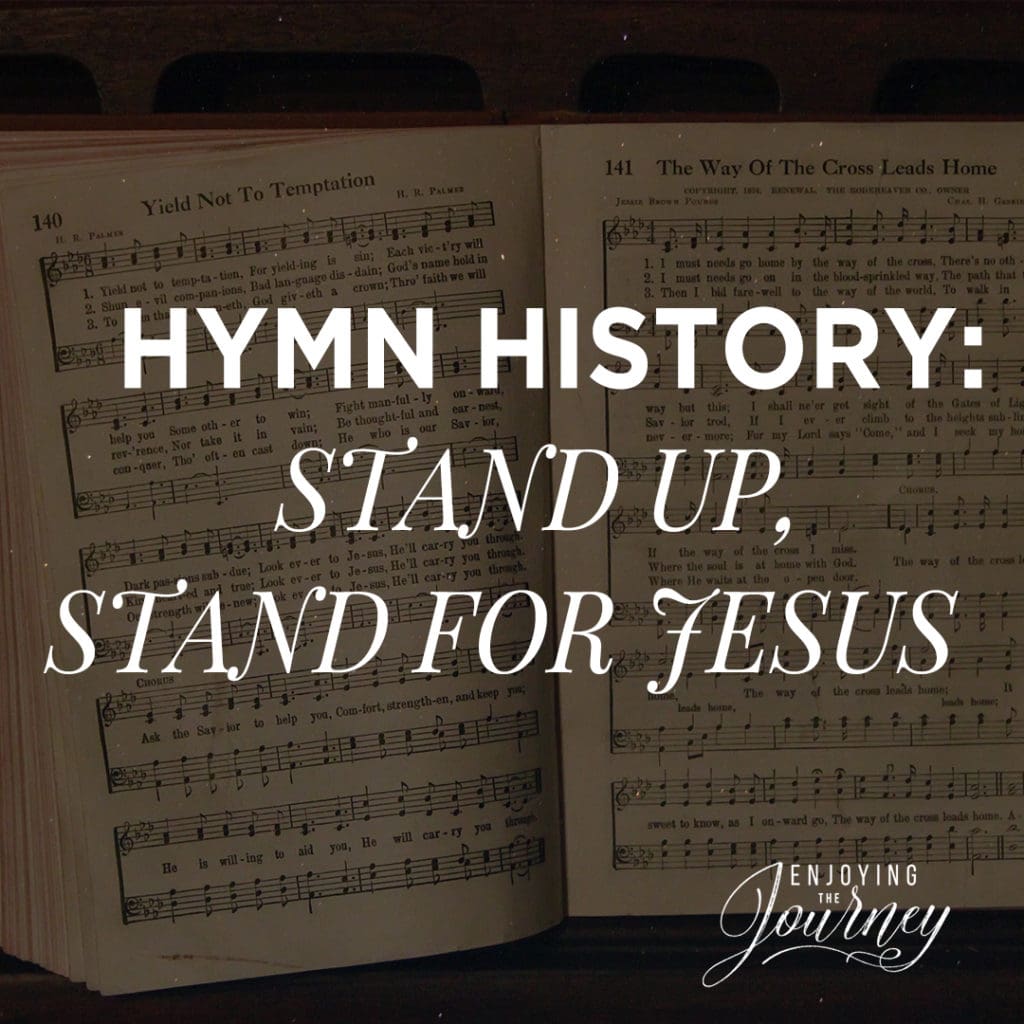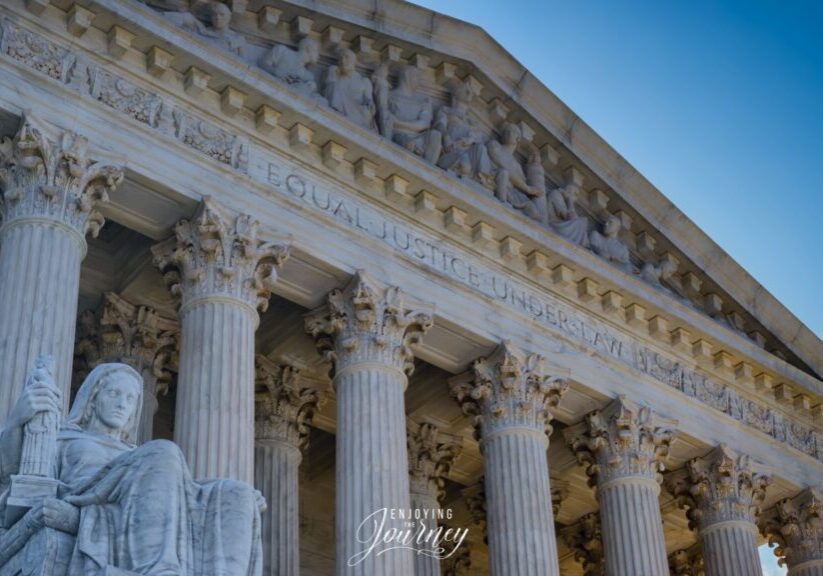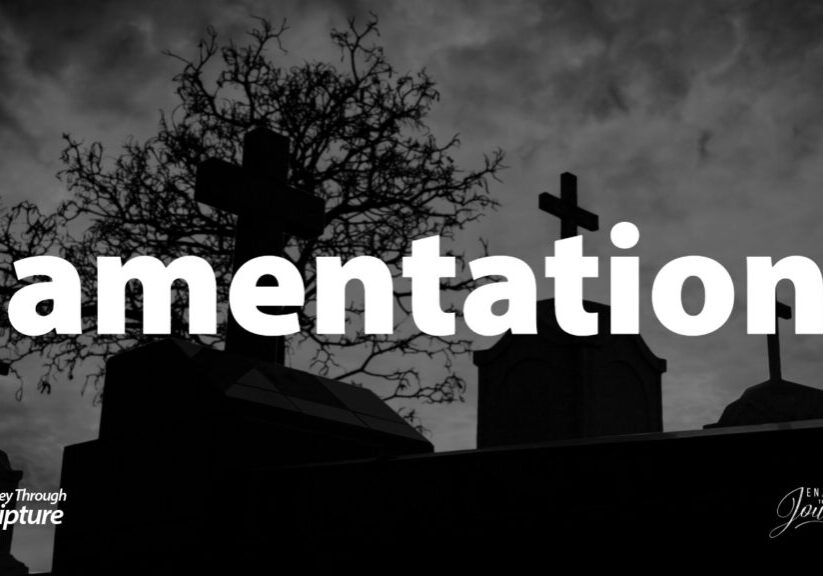
“Watch ye, stand fast in the faith, quit you like men, be strong.“ – 1 Peter 1:18-19
We are thrilled to share a series of brief accounts of how some of the great hymns of our faith were written. Each synopsis has been compiled through the research of Jerry Vargo and is shared by permission. It is our hope that these stories will be a help and encouragement to your Christian walk. This week we read the powerful and heart-stirring story behind the famous hymn, “Stand Up, Stand Up for Jesus.”
_____________________________________________________________________________________________
In Philadelphia, Pennsylvania in 1858 Pastor Stephen Tyng was looking to retire. He was a notable preacher much in demand in his years of ministry. The church was looking for a replacement for their retiring pastor and thought of his son, Dudley Tyng.
Dudley had graduated from Harvard and was pastoring a church in New York. His father’s church contacted him to consider being their new pastor. Dudley accepted their invitation and took over his father’s ministry at the Philadelphia church.
Dudley’s father, Stephen Tyng, was a golden tongued orator and statesman. Dudley preached nothing like his father – he was not the polished preacher like his father. What was the difference? Dudley was a fireball evangelist in the pulpit. The church people were used to listening to the calm picturesque preaching of his father and did not take well to Dudley’s lively sermons. After two short years the people became critical of Dudley. Dudley was outspoken in his convictions, especially when it came to slavery. Dudley was against slavery and was not embarrassed to express his feelings in the pulpit. Sensing that there were problems with the people’s perception of him, Dudley resigned the church. Quite simply, he did not want to stay and cause problems.
Dudley went across town and started a church from scratch. In addition to his pastoral duties, Dudley took on a noon time preaching meeting at the YMCA. Crowds grew larger and larger and soon the YMCA was full at lunchtime. Workers in the audience would be seen eating their lunch while Dudley preached to them. Dudley’s boldness increased his popularity and effectiveness.
On Tuesday March 30, 1858 five thousand men gathered at the YMCA to listen to Dudley preach. He preached on Exodus 10:11 “Go now ye that are men and serve the Lord.” He gave the invitation and over 1,000 men responded to receive Christ as Savior. The city was aroused and revival began. While he was preaching Dudley said the following words:
“I must tell my Master’s errand. I would rather this right arm be amputated at the shoulder than to come short of my duty to you in delivering God’s message.”
The next week at his country home Dudley walked out early in the morning, still wearing his robe, to watch the operation of a mule powered thrashing machine. He reached out to pat the mule on the head when it passed him and the long sleeve of his robe got caught in the gears of the machine and pulled his arm into the gears.
Rushed to the hospital, it was discovered that Dudley’s main artery was severed. Four days later gangrene set in and the arm had to be amputated at the shoulder. Two days later the shock to his body proved fatal and Dudley passed away.
However, before he died, he called his father, mother, wife and sons to his bedside. He held his father’s hand and said the following, “Father, stand up stand up for Jesus. Tell all my preacher brethren to stand up for Jesus.” A preacher friend of Dudley’s whose name was George Duffield was also in the room at that time. George said of his friend, “he was the noblest, bravest, and manliest man I have ever met.”
After Dudley’s death, George wrote a poem about Dudley and read the poem as a tribute to his friend the following Sunday at a memorial service in his church. George titled his poem Stand Up Stand Up for Jesus.
You can see in the words of the song the story of Dudley Tyng:
Referring to Dudley’s arm being injured:
Stand up, stand up for Jesus,
Stand in his strength alone;
The arm of flesh will fail you,
Ye dare not trust your own.
Referring to his sermon at the YMCA from Exodus 10:11
Stand up, stand up for Jesus,
The trumpet call obey;
Forth to the mighty conflict,
In this His glorious day.
Ye that are men now serve Him
George Duffield’s Sunday school superintendent printed copies of the poem, and the lyrics soon found their way into a Baptist newspaper, and the hymn spread from there. After first publication, the hymn was very popular. It was sung by both the Union and Confederate soldiers in the American Civil War. The hymn also became popular among British revivalists, and within public schools in England.
George J. Webb composed the most commonly used tune, called WEBB, also known as MORNING LIGHT. It was written during a voyage from England to the United States. The words are as follows:
1. Stand up, stand up for Jesus, ye soldiers of the cross;
Lift high His royal banner, it must not suffer loss.
From victory unto victory His army shall He lead,
Till every foe is vanquished, and Christ is Lord indeed.
2. Stand up, stand up for Jesus, the trumpet call obey;
Forth to the mighty conflict, in this His glorious day.
Ye that are brave now serve Him against unnumbered foes;
Let courage rise with danger, and strength to strength oppose.
3. Stand up, stand up for Jesus, stand in His strength alone;
The arm of flesh will fail you, ye dare not trust your own.
Put on the Gospel armor, each piece put on with prayer;
Where duty calls or danger, be never wanting there.
4.Stand up, stand up for Jesus, the strife will not be long;
This day the noise of battle, the next the victor’s song.
To him that overcometh a crown of life shall be;
He with the King of Glory shall reign eternally.
Discover more from Enjoying the Journey
Subscribe to get the latest posts sent to your email.






